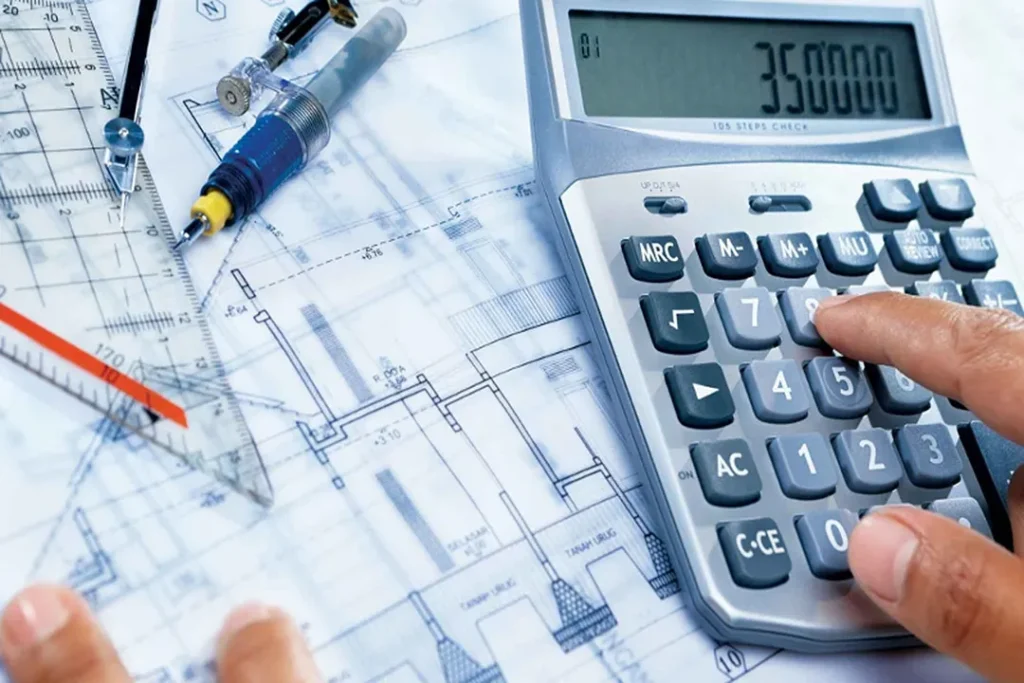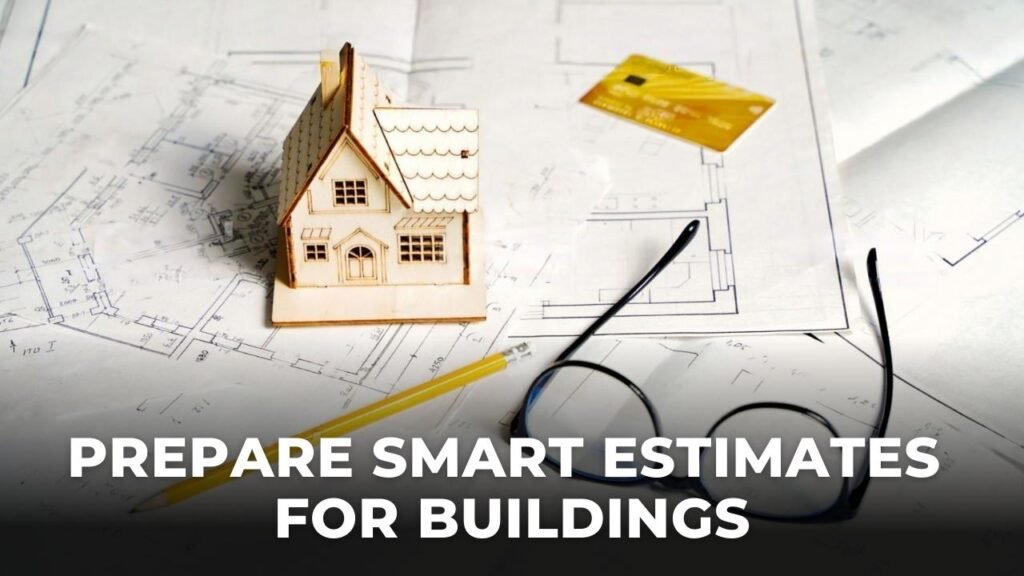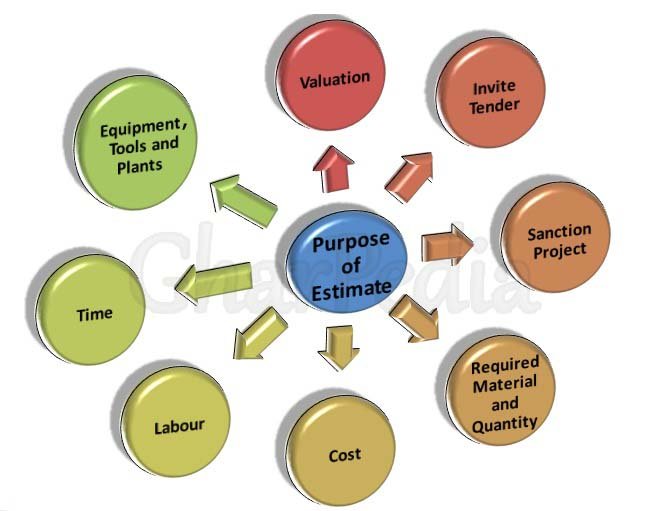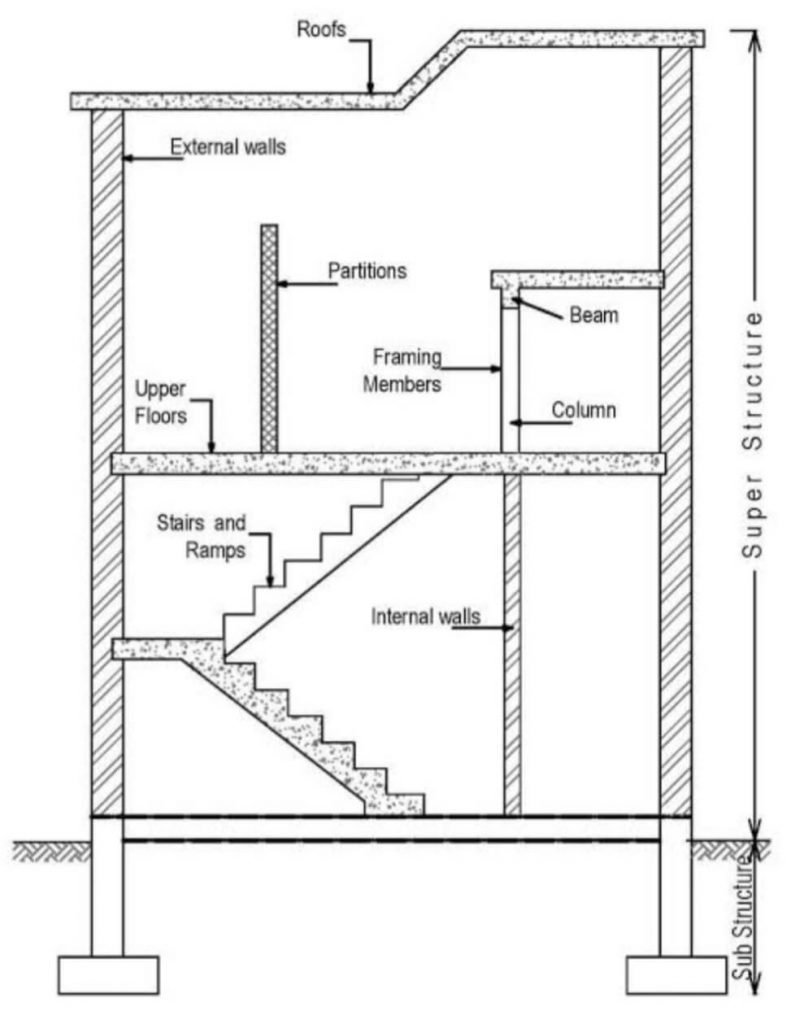MAHARASTRA ESTIMATE AND MAP IN THE E-STATE NIRMAN NIGAM DISTRICT PUNE
ESTIMATES
E-state Nirman Nigam A building estimate is a detailed projection of the costs involved in constructing a building. It encompasses various aspects such as materials, labor, equipment, permits, and overhead expenses. Creating a comprehensive estimate is crucial for budgeting and planning purposes in construction projects.

Introduction to Building Estimates:-
- Definition and importance
- Purpose of building estimates

Types of Building Estimates:-
- Preliminary estimate
- Detailed estimate
- Bid estimate
- Final estimate
Components of a Building Estimate:-
- Materials
- Types of materials
- Quantity takeoff methods
- Labor
- Types of labor
- Labor rates and productivity
- Equipment
- Types of equipment
- Rental rates
- Subcontractors
- Roles and responsibilities
- Subcontractor bids
- Overhead Costs
- Indirect expenses
- Contingency
- Profit Margin
- Determining profit
- Factors affecting profit margin
Estimating Methods:-
- Unit Cost Method
- Assembly Method
- Square Footage Method
- Cubic Footage Method
- Parametric Estimating
- Historical Data
- Software and Tools

Factors Affecting Building Estimates:-
- Project Scope
- Location
- Market Conditions
- Project Complexity
- Timeframe
- Regulations and Codes
- Seasonal Factors
Process of Creating a Building Estimate:-
- Initial Assessment
- Quantity Takeoff
- Cost Estimation
- Cost Analysis and Adjustments
- Documentation
Challenges in Building Estimates:-
- Inaccurate Information
- Changing Scope
- Market Volatility
- Labor Shortages
- Technology Adoption
- Communication Issues
Importance of Accuracy in Building Estimates:-
- Budgeting and Financial Planning
- Bidding and Contracting
- Risk Management
- Client Relations
- Project Success

Case Studies and Examples:-
- Successful Building Estimate Practices
- Challenges Faced in Building Estimates
- Lessons Learned
PUNE local construction companies or government agencies that have undertaken building projects in Osmanabad and analyze their cost estimates as case studies. Additionally, online resources or academic papers might offer insights into estimating building costs in the region.
Future Trends in Building Estimates:-
- Technology Integration
- Building Information Modeling (BIM)
- Data Analytics
- Sustainable Construction Practices
- MAP
The impact of global economic conditions on construction costs. Local factors such as availability of materials, skilled labor, and regional regulations would also play a significant role in shaping building estimates in Solapur.

1.Introduction to Maps:
Definition of maps: Maps are graphical representations of the Earth’s surface, showing physical features, political boundaries, and other geographical information.
Types of maps: There are various types of maps including political maps, physical maps, topographic maps, thematic maps, and more.
Importance of maps: Maps are essential tools for navigation, urban planning, environmental studies, disaster management, and various other fields.
2. Components of a Map:
Legend/Key: Explains symbols and colors used on the map.
Scale: Represents the relationship between distances on the map and actual distances on the Earth’s surface.
Compass Rose: Shows the orientation of the map, typically indicating north, south, east, and west.
Grid: Helps locate specific points on the map using coordinates.

3. History of Maps:
Ancient maps: Early civilizations created maps for navigation and trade, such as the Babylonian Map of the World.
Medieval maps: Maps in the Middle Ages were often symbolic and lacked accuracy.
Renaissance maps: During the Renaissance, cartography experienced a renaissance itself, with maps becoming more accurate and detailed.
Modern maps: With advancements in technology, maps have become highly detailed and accessible to the general public.

4. Uses of Maps:
Navigation: Maps are used for finding directions and planning routes.
Urban Planning: Maps help city planners visualize infrastructure and allocate resources efficiently.
Environmental Studies: Maps aid in studying ecosystems, natural resources, and climate patterns.
Disaster Management: Maps are crucial for planning evacuation routes and coordinating emergency responses.
Education: Maps are educational tools used to teach geography, history, and various other subjects.
E-state Nirman Nigam building map typically refers to a diagram or layout that illustrates the internal structure, layout, and various features of a specific building. These maps can include details such as room locations, exits, stairwells, elevators, restrooms, and other facilities within the building. They are often used for navigation, emergency planning, facility management, and architectural documentation.
бесплатное порно видео бесплатное порно видео .
http://agrocolleg.ru/media/pgs/?effekt_zeygarnik_sekret_zapominaniya_nezavershennyh_del.html
Greate post. Keep writing such kind of information on your page. Im really impressed by it.
Hello there, You’ve performed an incredible job. I’ll definitely digg it and in my view suggest to my friends. I’m sure they’ll be benefited from this site.
накрутка пф москва заказать
I don’t think the title of your article matches the content lol. Just kidding, mainly because I had some doubts after reading the article.
Hi to every one, for the reason that I am genuinely keen of reading this blog’s post to be updated on a regular basis. It contains pleasant stuff.
zFilm-hd
Thanks for sharing. I read many of your blog posts, cool, your blog is very good.